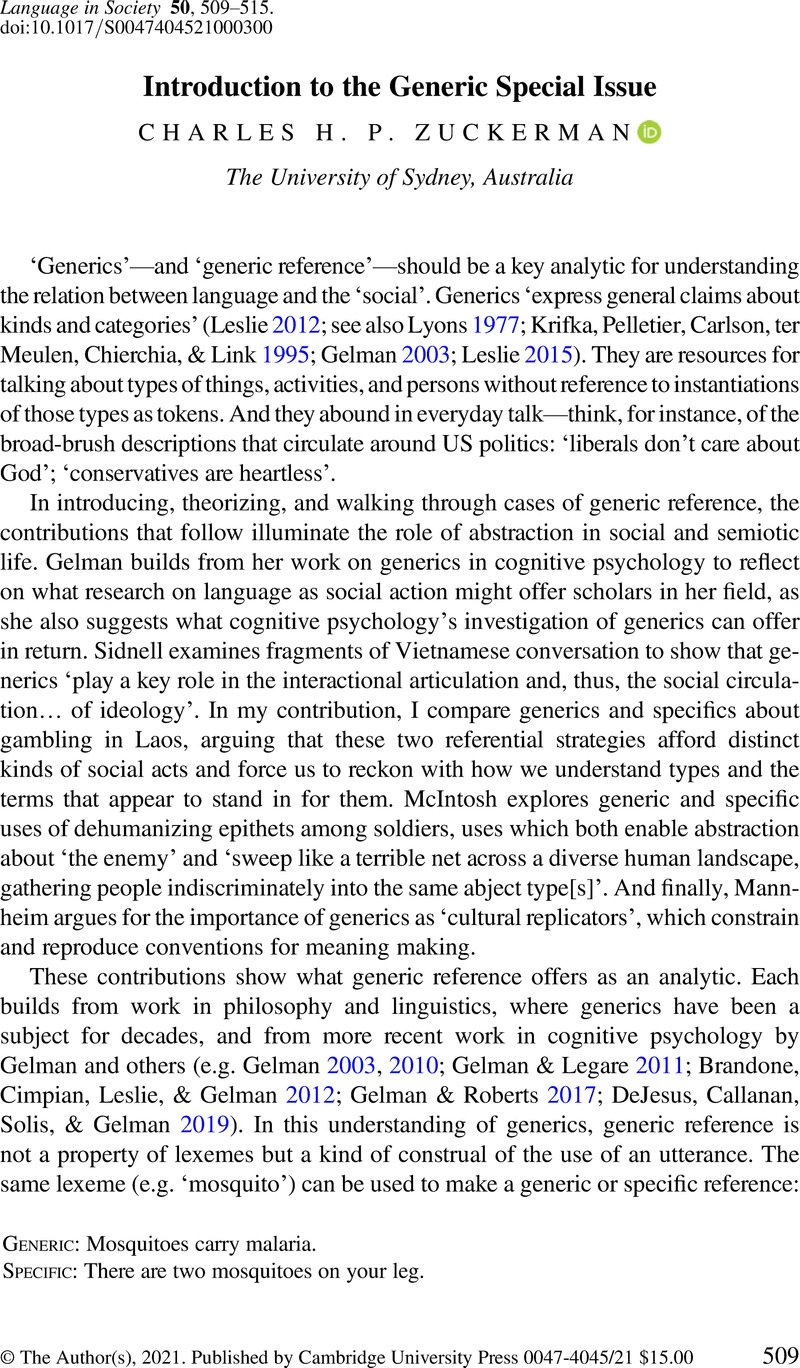Article contents
Introduction to the Generic Special Issue
Published online by Cambridge University Press: 12 August 2021
Abstract

- Type
- Introduction
- Information
- Copyright
- Copyright © The Author(s), 2021. Published by Cambridge University Press
Footnotes
Thanks to Susan Gelman, Janet McIntosh, Scott MacLochlainn, Bruce Mannheim, and Jack Sidnell for participating in the original conference panel and for engaging with enthusiasm and a collaborative spirit throughout the process of turning it into a special issue. I first began thinking about generics while a graduate student at Michigan with Bruce, and since the panel's inception, Jack has spent countless hours discussing the issue with me and consulting on drafts. For discussion in many forums, I am also grateful to Nick Enfield, Cynthia Gordon, Judith Irvine, Didem Ikizoglu, Webb Keane, Michael Lempert, John Mathias, Michael Prentice, Kamala Russell, and Joshua Shapero. This contribution has been significantly improved by the editors, Susan Ehrlich and Tommaso Milani, the journal's editorial assistant, Brittney O'Neill, its copyeditor, Audra Starcheus, and an anonymous reviewer. Finally, I would also like to thank Michael Silverstein, both narrowly, for his agreeing to join the panel in the first place, and broadly, for inspiring many of the ideas I articulate here and elsewhere. Robert Moore and Constantine Nakassis, in consultation with Michael's family, facilitated the publication of his remarks.
References
REFERENCES
- 7
- Cited by



